Cooperative Education (Co-op) and Internship Program
Overview
SIUE Career Development Center's Cooperative Education (Co-op) and Internship Program is dedicated to providing equitable access to career opportunities and success. While not all positions are paid, we strongly advocate for paid opportunities [pdf].
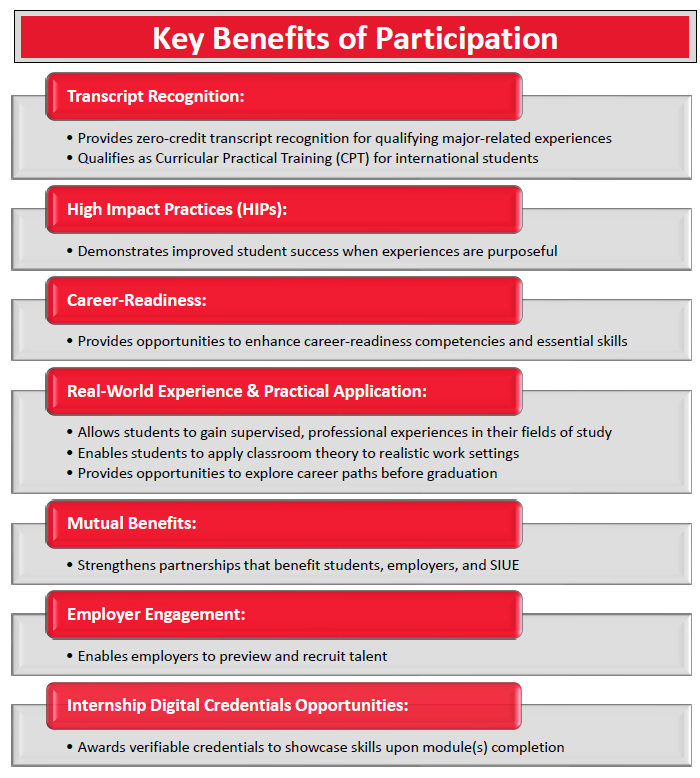
Coordination and Scheduling: Scheduling, coordination of major-related work, and compensation should be determined collaboratively by the student and the employer
Earn Zero Credit TRANSCRIPT Recognition
How to Report Your Experience:
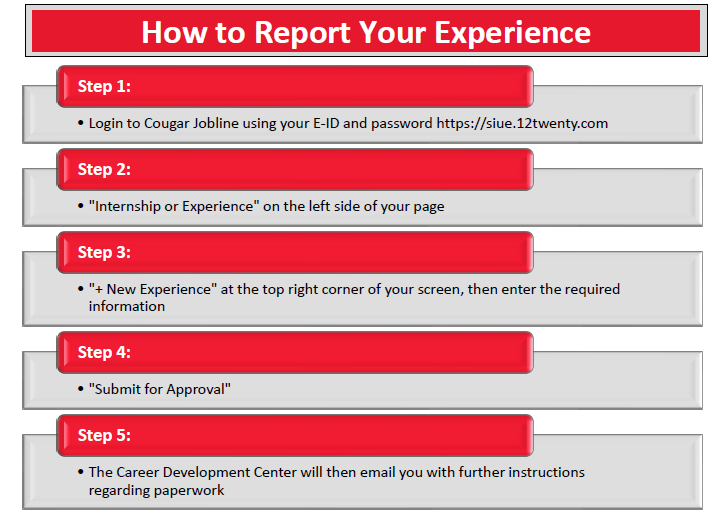
For additional details, review Forms, Orientation, Deadlines, and How to Participate
If you are interested in earning credit for your experience, please contact your academic department for more details. Keep in mind that not all programs offer credit options, and eligibility varies. For those who cannot or prefer not to receive credit, the Career Development Center's Co-op and Internship Program is an excellent way to officially document your experience without incurring fees or tuition.
Features of a High Impact Internship, Co-op, or Experience
For Students
Maximize Your Major-Related Experiences
Take advantage of every opportunity to enrich your learning with major-related experiences.
- Those that align with the 8 key features of rigor, or the most appropriate features for the experience, as illustrated in the chart below, are considered High Impact and offer the greatest benefits to students (Kuh et al., 2017).
- For example, a Co-op or internship experience may still be deemed high impact even without a public demonstration of knowledge, as written reflections are a core component of these experiences. Additionally, not all employers provide opportunities such as poster presentations or active involvement in meetings.
For Employers
Enhance Your Impact
If you have any questions about creating High Impact experiences, please contact Dr. Tammy Taylor at tammtay@siue.edu for more information.
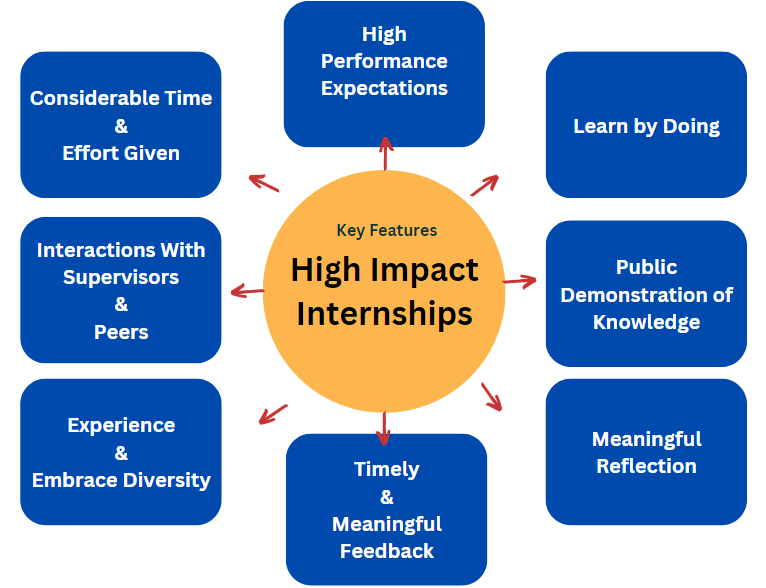
Curricular Practical Training (CPT) - International students
International students eligible to work off campus are required to participate in CPT to obtaining work authorization. Completing paperwork with the Career Development Center is one of the required steps. Students must be issued the I-20 prior to beginning any type of off-campus work or volunteer experience.
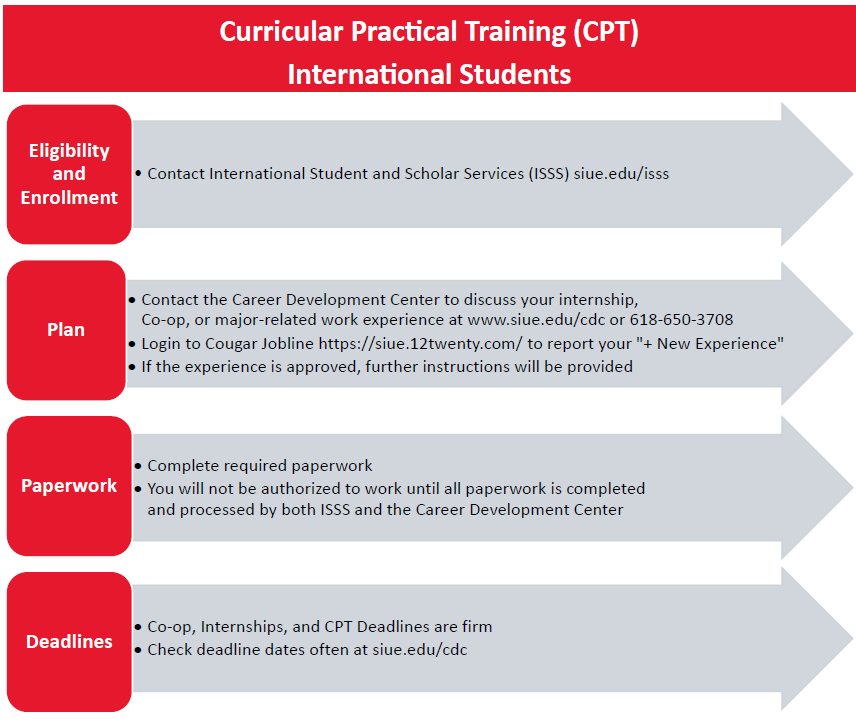
Video: ISSS and CDC Overview of CPT Process
If you will be receiving credit hours for the internship through your academic department, you must complete paperwork for ISSS, the Career Development Center, and your academic department. Contact Dr. Taylor at tammtay@siue.edu for more information.
Types of Experiences and Major Differences
Type |
Compensation
|
Duration
|
Commitment |
Duties |
Co-op |
Always Paid | 2+ terms | Full or Part-time |
|
Internship |
Paid or Unpaid | 1+ term(s) | Usually Part-time |
|
Micro-internship
|
Usually Paid | 2+weeks | 40+ Hours |
|
The Career Development Center advocates for paid internships.
Guidelines for Participation
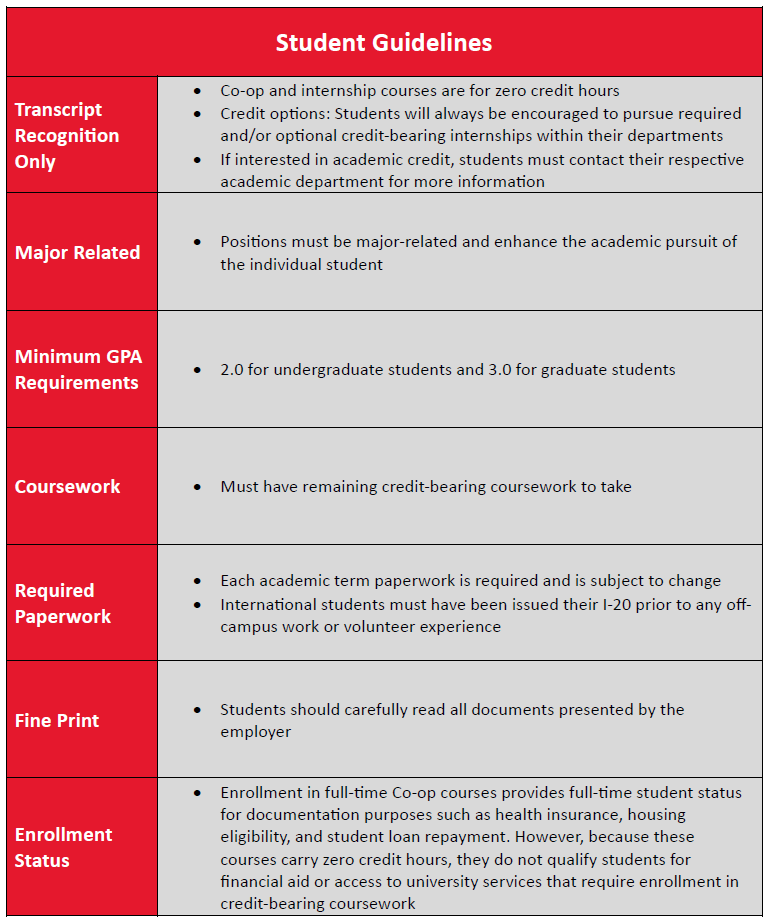
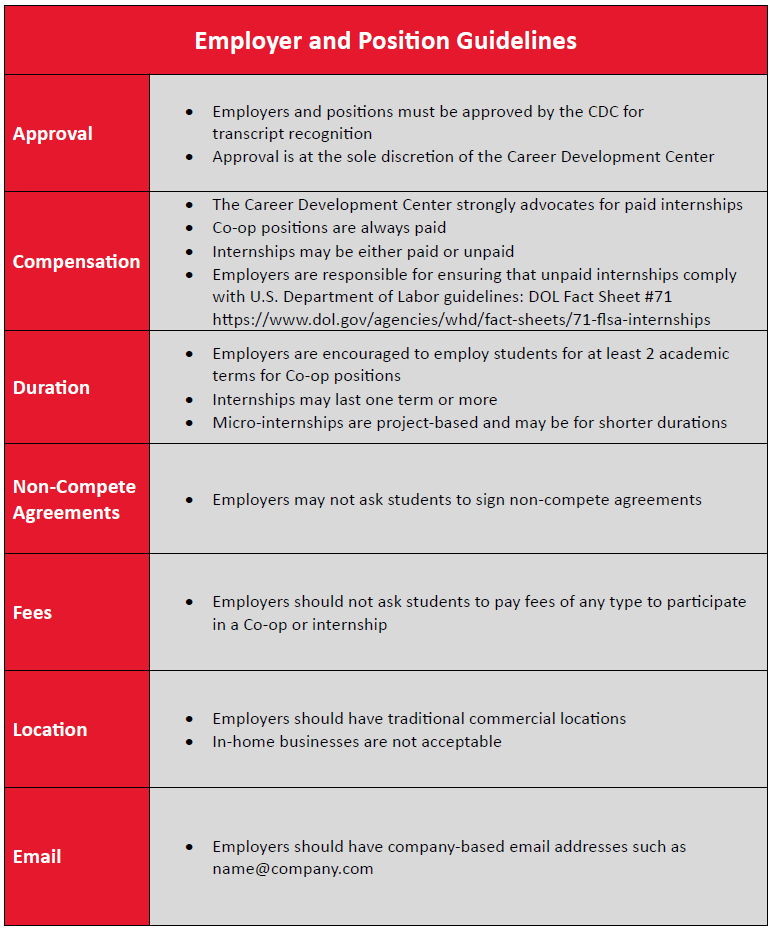
Explore our Co-op resources to learn more or contact us for more assistance.
The Career Development Center coordinates internships for students in a variety of academic programs. Students should contact the CDC for more information.
Job Acceptance Etiquette: Policy Overview
| Student Responsibilities |
|
| Consequences of Reneging |
|
| Employer Expectations |
|
| Why This Matters |
|
| Guiding Principles |
|











